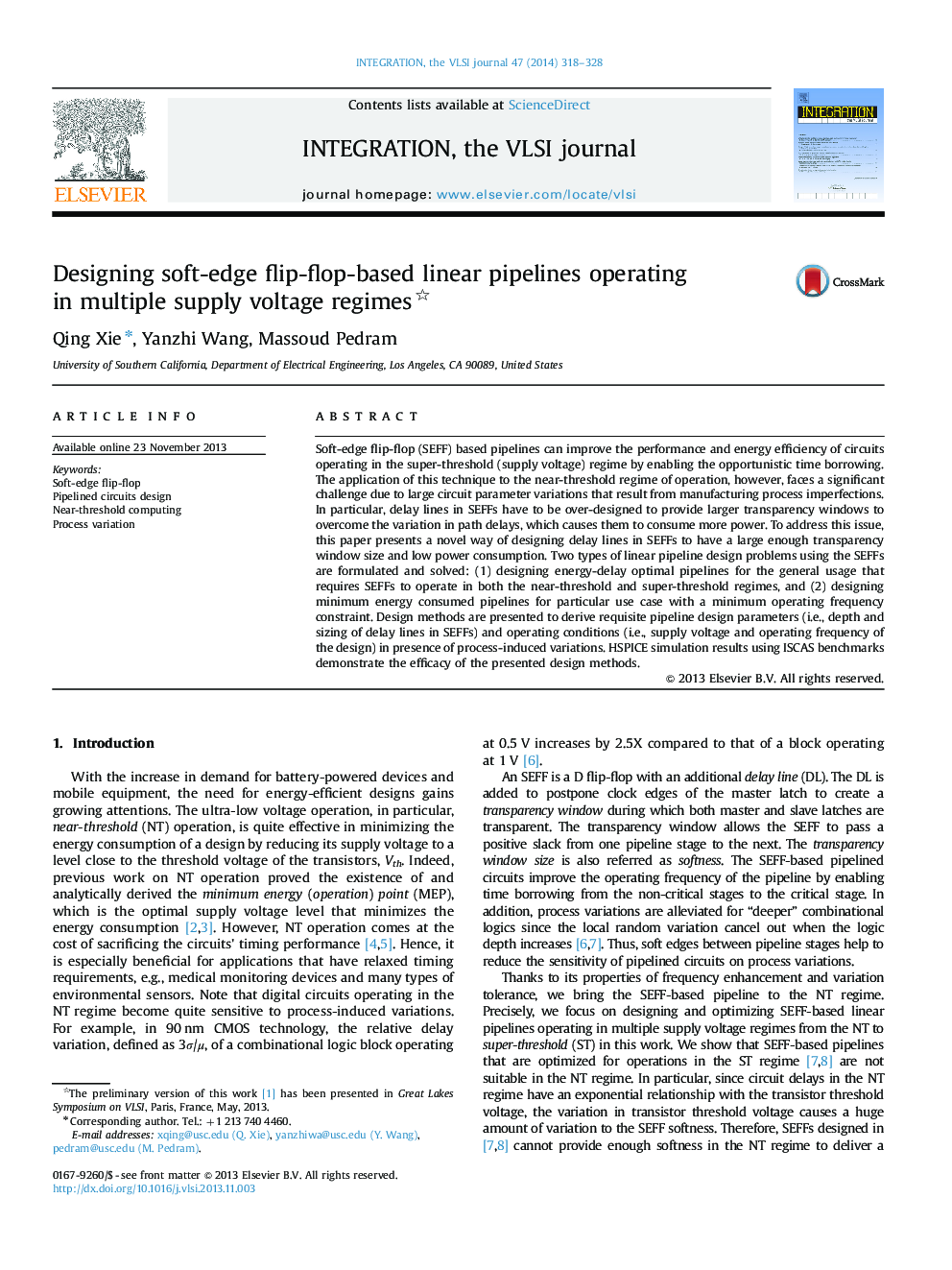| کد مقاله | کد نشریه | سال انتشار | مقاله انگلیسی | نسخه تمام متن |
|---|---|---|---|---|
| 541014 | 871370 | 2014 | 11 صفحه PDF | دانلود رایگان |
Soft-edge flip-flop (SEFF) based pipelines can improve the performance and energy efficiency of circuits operating in the super-threshold (supply voltage) regime by enabling the opportunistic time borrowing. The application of this technique to the near-threshold regime of operation, however, faces a significant challenge due to large circuit parameter variations that result from manufacturing process imperfections. In particular, delay lines in SEFFs have to be over-designed to provide larger transparency windows to overcome the variation in path delays, which causes them to consume more power. To address this issue, this paper presents a novel way of designing delay lines in SEFFs to have a large enough transparency window size and low power consumption. Two types of linear pipeline design problems using the SEFFs are formulated and solved: (1) designing energy-delay optimal pipelines for the general usage that requires SEFFs to operate in both the near-threshold and super-threshold regimes, and (2) designing minimum energy consumed pipelines for particular use case with a minimum operating frequency constraint. Design methods are presented to derive requisite pipeline design parameters (i.e., depth and sizing of delay lines in SEFFs) and operating conditions (i.e., supply voltage and operating frequency of the design) in presence of process-induced variations. HSPICE simulation results using ISCAS benchmarks demonstrate the efficacy of the presented design methods.
Journal: Integration, the VLSI Journal - Volume 47, Issue 3, June 2014, Pages 318–328
